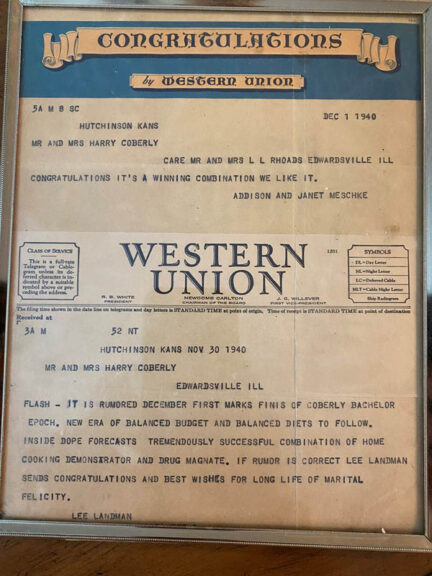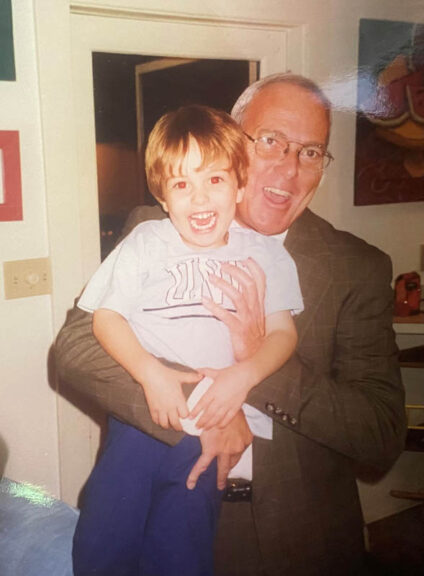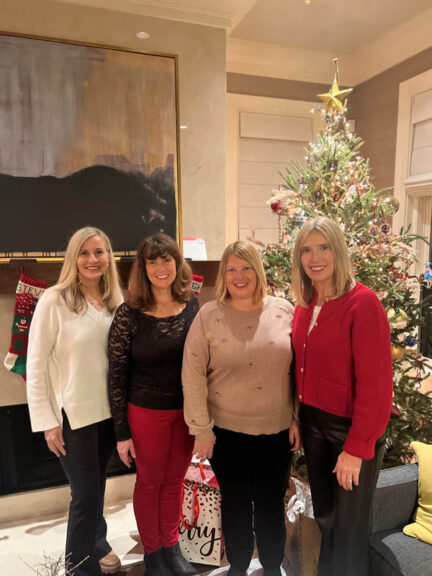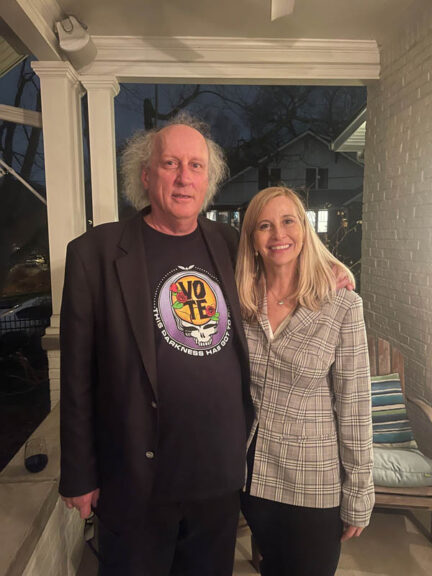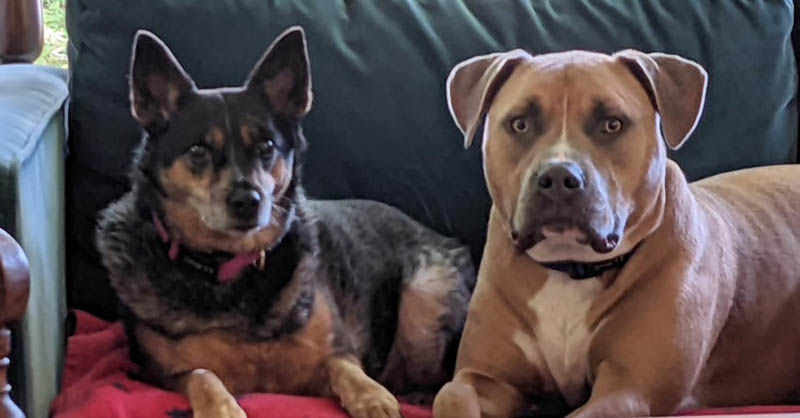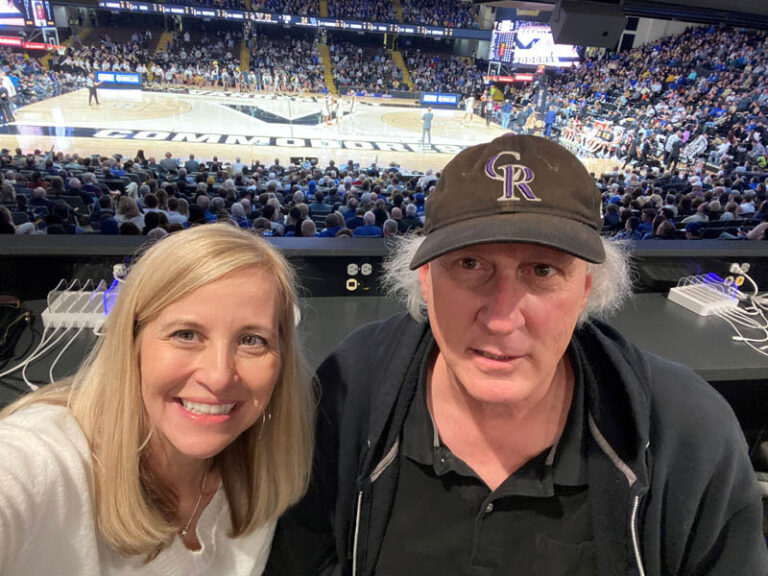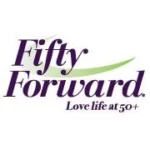Megan Barry embodies resilience and advocacy. Her journey through triumphs and challenges has led her to be a guiding light for others. In this podcast, learn about her life including the lessons she’s learned, the passion that drives her, and why she is intent on building awareness about substance use disorders since they claimed the life of her only son, Max.
Will you share a pivotal moment or experience in your life that has shaped who you are today?
I think that as we grow older and we experience more in our lives, those pivotal moments come a lot more often because challenges and change come with age. But I will tell you that for me, we lost our child… … [That] tragedy, grief and loss, those moments … (for me) created more empathy, more kindness for people.
You never know what people are going through, and I saw that so often… I would be at the grocery store, and I would be having a moment, and someone would just come up and say, “I love you” or give me a hug. People I didn’t know, but they could see in me something that needed healing. And so, those pivotal moments … have made me — I hope — more empathetic and more kind to others that I now see that need a hug or need to be told, “You’re gonna be okay.”
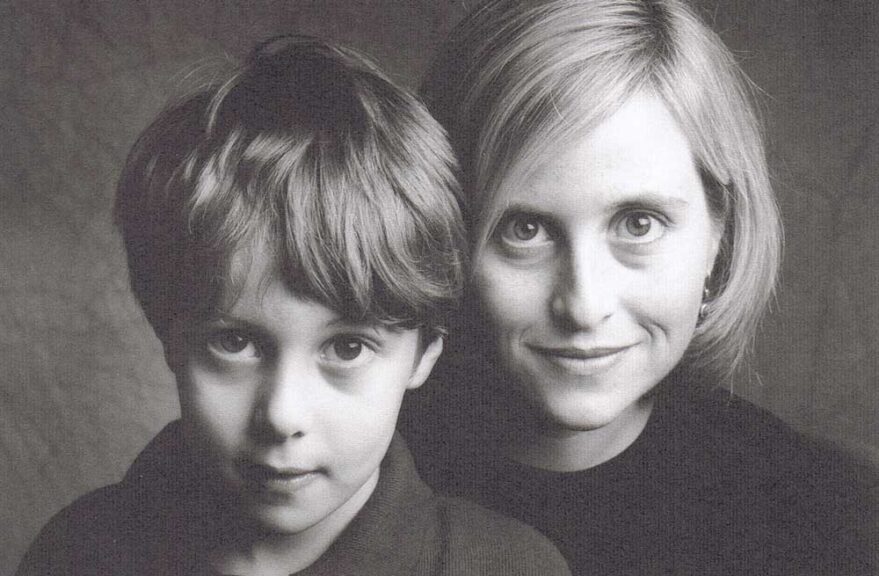
During the podcast, she talks about her deep family roots and growing up in Kansas. Don’t miss the powerful example she learned from her mother’s role in the Random Acts of Kindness group. In this conversation, Megan Barry also talks about her academic education, and career growth ranging from a brief stint in teaching to healthcare and later to public service.
Are there insights you can share about effective leadership, especially for those over the age of 50?
One of the things, I think, that comes with being over 50 — and having had over 50 years — are experiences. … In leadership roles, you really, really figure out that the best path forward is to empower other people to bring their best selves — so that you can have the benefit of their energy and their passion by making sure that they can learn from you. …You give them the opportunity to shine… Having folks who work with you — who are younger – is really rewarding! I have a team right now that’s … definitely younger than 50, but they’re so eager. And when they make mistakes … I had a conversation the other day [with one our teammates] and said, “Hey, we’re all going to make mistakes.” …And, if you’re not making mistakes, you’re not learning. …I think we always want to be learning, and that’s [how] people over 50 can help pave that way for folks — who are younger — to understand that it’s okay to try something and maybe not succeed.
She continues to speak about the value of intergenerational sharing as well as the importance of passing on wisdom and life experiences so we can learn from one another.
Losing a loved one, especially a son or daughter, can be so tough. Do you have any advice for others facing similar circumstances?
You know, they say that there are five stages to grief, but nobody tells you that you’re gonna get to the other side with your soul intact because you’re not … and grief comes in waves.
There’s a lovely songwriter that I love. His name is Jason Isbell, and he has this great line in one of his songs that says, “It never gets easy, it just gets easier.” And I think that’s true. When Max passed, we got so many wonderful cards and gifts and outreach from folks. That was really, really great. Just beautiful. One of the things that I got that I still cherish is this book called “Healing After Loss.” …Every day there’s some kind of grounding meditation. I religiously read that every day because … I don’t know … I just needed to feel connected to people who had lost something… I didn’t want to talk to people about it, but this book helped me. And so, I have found that when other folks have lost [a loved one]… especially a child — that is something I send because it was so helpful to me.
In this podcast, the conversation touches on second chances, learning from the stellar examples of others, including Civil Rights leader Diane Nash, and the importance of opening doors for others – especially the youth in our communities.
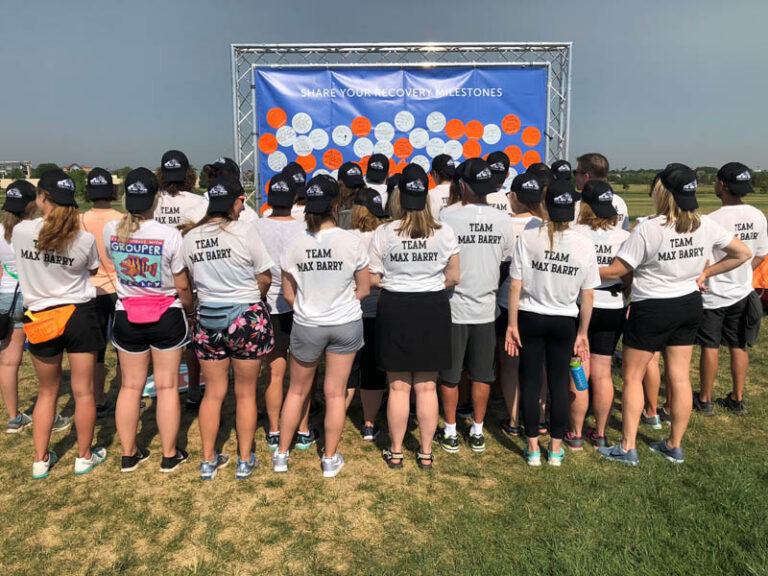
What are some effective ways for individuals to stay connected and involved in their communities as they age?
I look at my mom and my dad, who are both still with me. My mom is 80 and my dad is 81. …[One] example that they share is definitely ones of friends. They have friends. They have connected networks. My dad still lives in a house, but my mom lives in an older community… My dad still lives in a house, but my mom lives in an older community… They’re not together. But, they both made an effort (when they moved into these places) to create networks of people that they enjoy… I mean, I can’t even get my mom on the phone… She’s so busy… But I think finding a community and staying connected is the example that my parents have given me.
One of [FiftyForward’s] values is to help older adults overcome isolation and live a healthier life. How does this resonate in your life?
At Max’s Memorial. my husband spoke, and he said, “The counterweight to grief is community.” And what I have come to appreciate is that community is the counterweight to everything. It’s the counterweight to loneliness. It’s the counterweight to mental health… We’re all in community. And so I love that community is the counterweight. FiftyForward exists because it is an actual intentional representation of creating community.
In this podcast, learn about some of Megan Barry’s key resources for coping, her rescue pups, and how she stays healthy, focused, and motivated. Don’t miss the role her grandparents played in her life. She shares a poignant story about her grandmother being fired when she got married — which speaks volumes of the times. In addition, she shares a very special memory about a trip they took together.
Memories and mentors, life experience, and family loss are key contributors to Megan Barry’s life today as she focuses on being a peacemaker and an advocate for others.

This Squeeze the Day is brought to you by the All of Us Research Program from the National Institutes of Health. Learn how you can help change the future of health by participating in the program.
Visit joinallofus.org to learn more.


